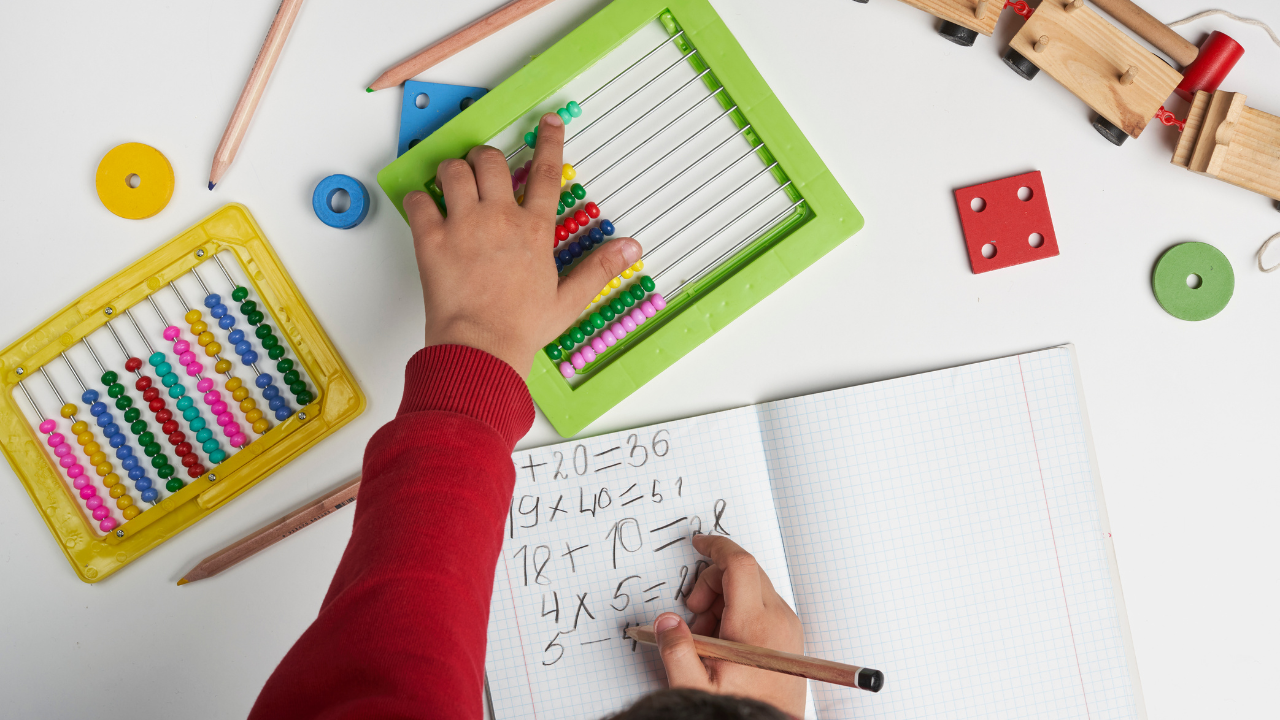How to Choose the Right Multisensory Math Tutor for Your Child

We recently had the chance to sit down with Adrianne Meldrum. Adrianne Meldrum is the founder and owner of Made for Math (MFM), an all-online math center focused on serving students with dyslexia, dyscalculia, and math learning disabilities.
She is a certified Multisensory Math Instructor through Marilyn Zecher. She holds a Master’s Degree from Bridges Graduate School of Cognitive Diversity.
Adrianne is married with three boys and lives in Mesa, AZ where she enjoys poolside living.
We chat with Adrianne about using a multisensory approach to teaching math, how challenged learners can benefit from this approach, and so much more!
During our conversation with Adrianne, she shared advice for parents who are seeking to find someone to help their children in math. Today, we want to share that advice with you, plus some great book recommendations!
Here are 5 Things to Keep in Mind When Choosing the Right Math Tutor for Your Child:
- The severity of the issue: This can range from mild to severe.
- Age of identification: This can make a big difference, whether a child received their diagnosis at a young age or a more advanced age.
- Consistency in instruction: Try not to hop from tutor to tutor because consistency in instruction really matters.
- Math anxiety: Math anxiety can really do a doozy on a child. Sometimes what the child is experiencing isn’t even a math disability, it’s simply math anxiety.
- Motivation: This is typically a bigger issue for older students. Sometimes kids do not want help. That’s okay, they will come around.
Ask These 4 Questions of Any Potential Math Tutor for Your Child:
- Are you up on the latest research? There is a lot of research happening and whoever you hire needs to be familiar with what's going on so they can help get the best results for your child.
- Do you teach in a multisensory way? This involves using multiple senses simultaneously.
- Have you had multisensory math training? Training or mentorship in multisensory math goes a long way. Look for someone who has completed training or mentorship with Marilyn Zecher, Professor Sharma, or Steve Chin in the UK.
- Do you use systematic lesson plans? In addition to doing multisensory math, they should also have a systematic lesson plan. A systematic math lesson starts with lots of warm-ups, getting the brain prepared for that new topic coming in at the end. And we practice, We only do new topics for 10 minutes.
BONUS: 3 Books to Learn More About Multisensory Math!
1. Effective Teaching Strategies for Dyscalculia and Learning Difficulties in Mathematics by Marie Pascale Noel and Giannis Karagiannakis
This book is newer and it is not light reading! This book is so good. It has lots of diagrams and lots of ideas, and it is all research-based.
2. Mathematics for Dyslexics and Dyscalculics by Steve Chinn
This is the fourth edition because the author always tries to keep the research up to date. That's an excellent book and comes highly recommended.
3. Discovering Dyscalculia: One Family’s Journey with a Math Disability by Laura Jackson
This one is for the parents! This book will resonate with so many parents who are on a similar journey. It’s short, empowering, exciting, and fun!
For our full conversation with Katy Vassar, check out our latest episode of the Together in Literacy podcast. If you like what you hear, don’t forget to rate, leave a positive review, and subscribe!
We officially have merch! Show your love Together in Literacy podcast with a t-shirt or sweatshirt!
Looking for strategies and resources?
Sign up for our newsletter for news, resources, and freebies delivered straight to your inbox.
We hate SPAM. We will never sell your information, for any reason.

